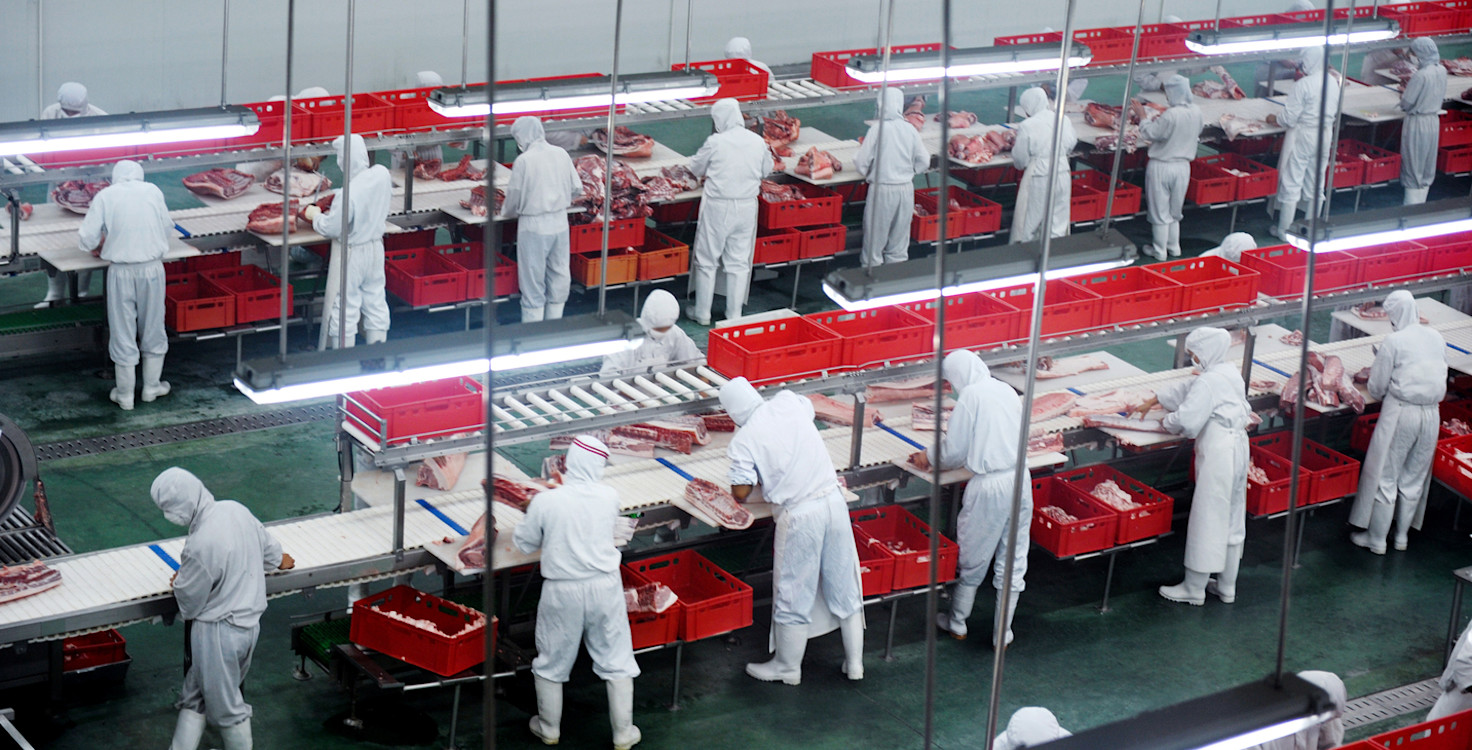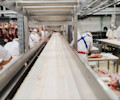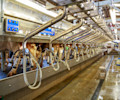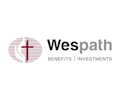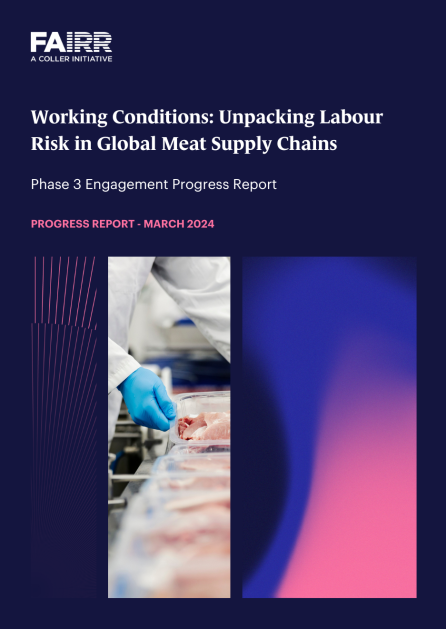In 2023, FAIRR and a group of investor members engaged six global meat processors to strengthen corporate policy, enforcement mechanisms, and data reporting practices to amplify worker voice to promote a stable, productive, and healthy workforce. Specifically, through the themes of health and safety, fair working conditions, and worker representation. These areas are key for companies to hear workers’ unique perspectives and on-the-ground insights across operations, enabling them to mitigate labour risks more proactively and efficiently, before they lead to operational setbacks, reputational damage, or litigation.
This year’s progress report puts a magnifying glass on important industry issues, including the three explored below.
For FAIRR’s full analysis and company findings, download the report.
Labour shortages continue
Labour shortages in meat production continue to intensify across markets, including the US and UK, and companies are struggling to recruit locally. This leads to operational disruption as companies are not able to operate at full capacity, hindering their ability to deliver on expansion plans and therefore impacting their bottom line (as experienced during the pandemic).
Companies are taking some action, including enhancing employee benefits to attract a more stable workforce. However, these efforts have failed to address ongoing labour shortages and fall short of improving actual working conditions (such as wages, sick pay, shifts and scheduling, plant-level ergonomics, etc). As a result, half of the companies in the engagement have temporary migrant and refugee labour. Any reliance on vulnerable worker groups can increase operational, compliance, and reputational risks for a company. This is due to the direct dependence of migrant workers on their employers, which increases the likelihood of exploitation and poor working conditions.1 However, it is unclear whether this is a short-term measure or part of a long-term labour strategy from the companies.
↓ Companies report limited evidence of consulting their workforce and no evidence of consulting labour representatives on how to become employers of choice.
Subcontracting presents a growing risk to companies
Oversight of subcontracted workers is key to preventing reputational and legal risk. In the US, a Department of Labor investigation established that 4 of the 6 companies in the engagement were connected to a cleaning subcontractor employing children in violation of labour laws. To date, JBS is the only company that has made a public statement and taken action to address on the issue.
Meat processing companies need to improve their oversight to avoid fostering such violations, by auditing labour agencies and carrying out their full human rights due diligence.
↓ Most companies in this engagement offer insufficient reports of board oversight of labour issues, particularly in relation to subcontracting, which aligns with the low data available on the topic.
↑ BRF, Cranswick, and Marfrig disclose the reporting chain on labour matters to the Board and the types of information reported, for example, grievance cases or compliance programmes.
↓ Reporting on subcontracted workers is not common industry practice. Only Marfrig and WH Group disclose metrics on their subcontracted workforce.
Greater worker representation is key to risk mitigation
Better and more effective worker representation through internal and external structures is needed across all companies in the engagement. This is crucial for raising and addressing labour issues on the factory floor, improving worker retention, and can mitigate operational disruption during transformational change. For example, any change in process or production systems supporting a climate transition will only be successful if it has buy-in from its key stakeholders i.e workers.
↓ While improvements have been made, disclosure from companies in the engagement on worker representation has been largely stagnant, which may reflect that on-the-ground changes in worker representation remain limited, restricting corporate ability to benefit from the risk mitigation potential of worker representation.
↑ Five companies disclose the size of their workforce covered by collective bargaining agreements, which is an indicator of corporate engagement with worker representatives in specific markets or operations. Cranswick is the only company not to disclose this information.
↓ Despite all six companies making commitments to climate change mitigation and investments in automation, only one reports engaging worker representatives on either of these topics.
Looking forward
In the past 3 years, investors supporting this initiative have gained a deeper understanding of the labour issues in the meat industry and have established a constructive dynamic to address labour risk with the six companies. We are encouraged by the level of engagement from companies. However, greater transparency is needed. Specific recommendations for companies to improve their disclosure and practices can be found in the full report.
What investors can do
Engage meatpacking companies directly on labour risk, covering the key areas FAIRR sets out in its Working Conditions methodology, which cover health and safety, fair working conditions, and worker representation.
Use FAIRR’s Working Conditions question bank to assess and engage companies on the topic.
Join FAIRR’s collaborative investor engagement on Working Conditions, get in touch with Sian Jones if you would like to be updated on when this engagement will re-open for sign-on.
Read FAIRR’s newest Working Conditions report for the full dataset and current industry analysis.
References
1 ILO (2022) Temporary labour migration: Unpacking complexities. Available from: https://www.ilo.org/wcmsp5/groups/public/---ed_protect/---protrav/---migrant/documents/publication/wcms_858541.pdf
FAIRR insights are written by FAIRR team members and occasionally co-authored with guest contributors. The authors write in their individual capacity and do not necessarily represent the FAIRR view.
